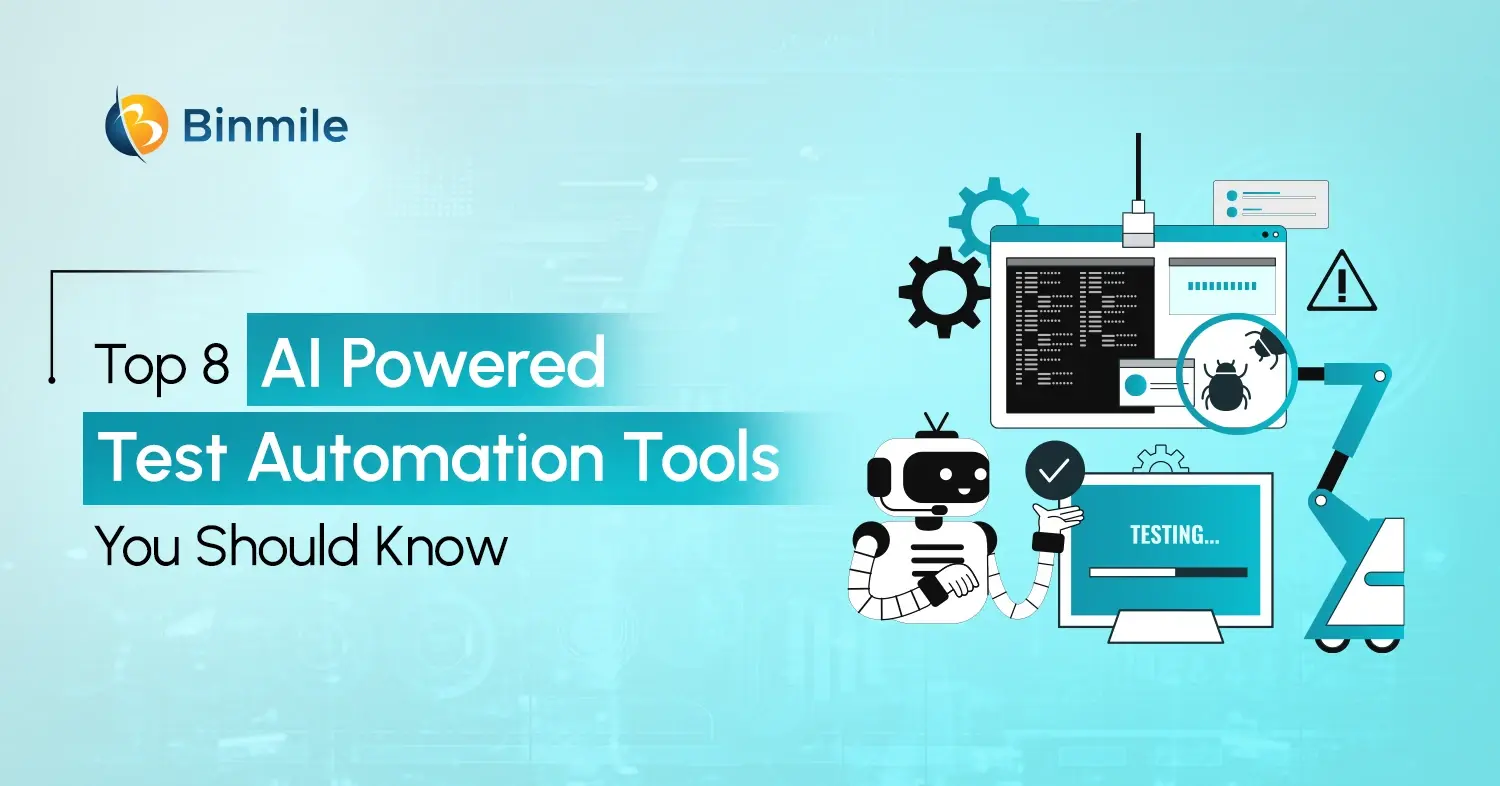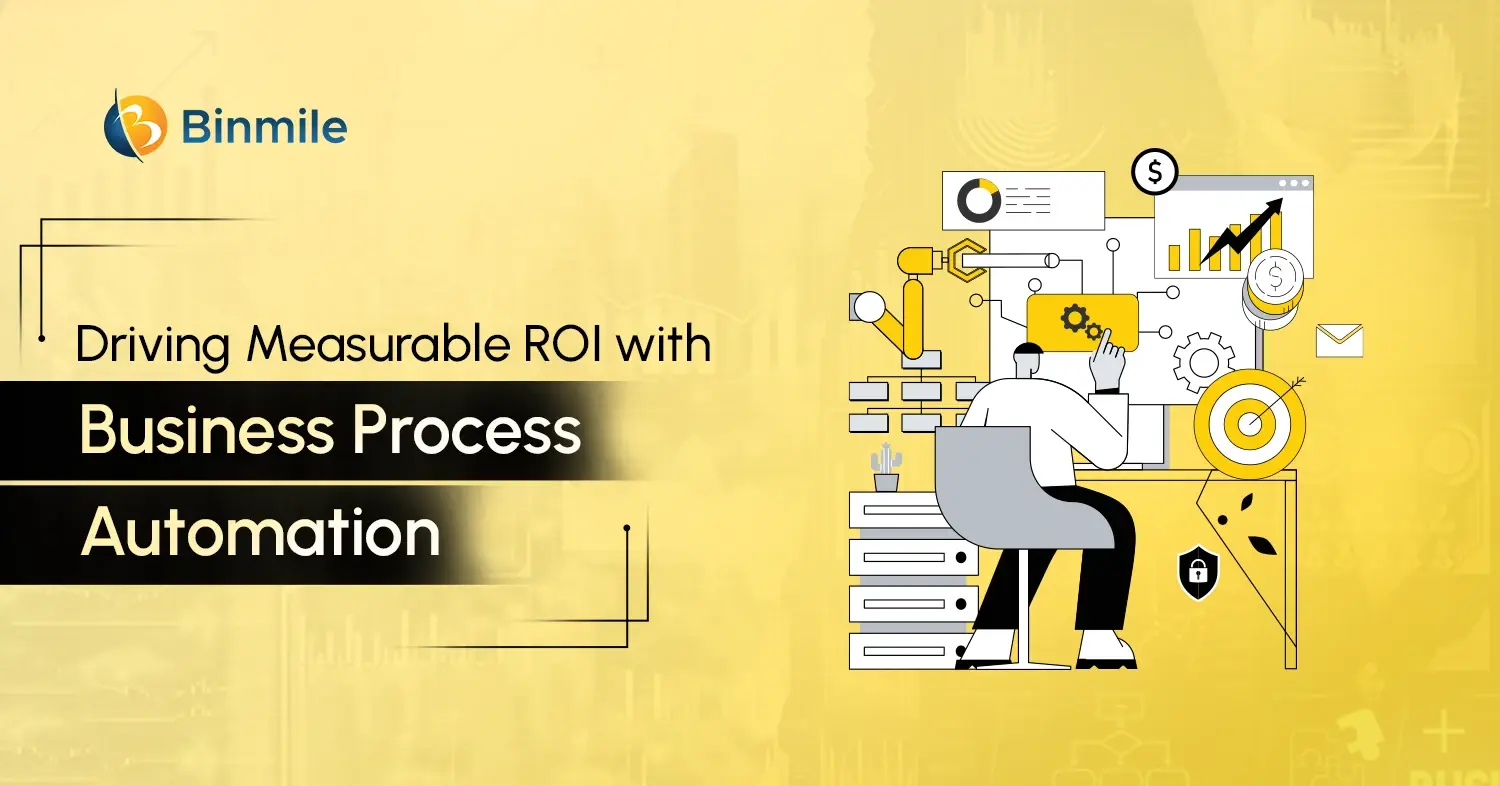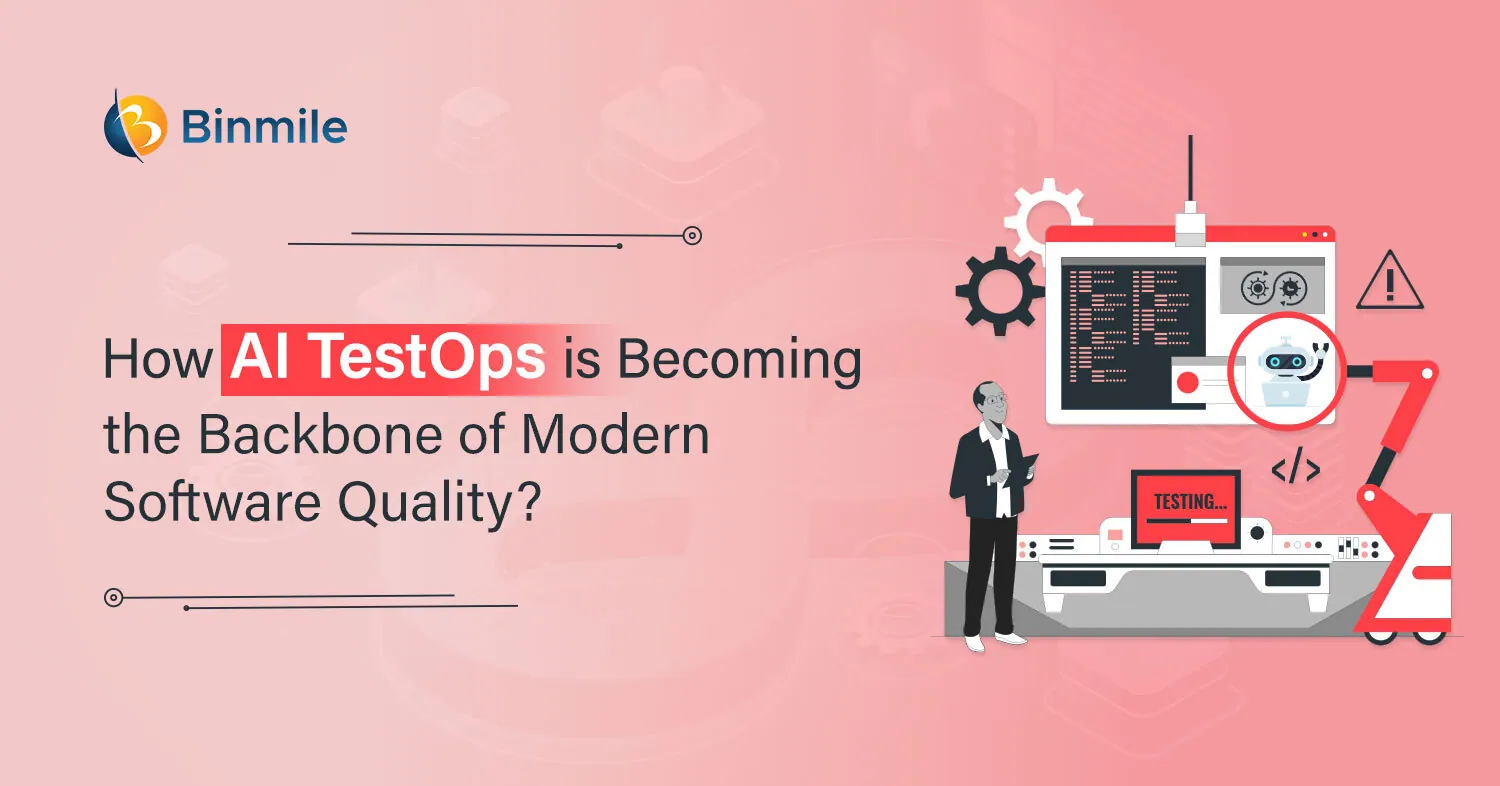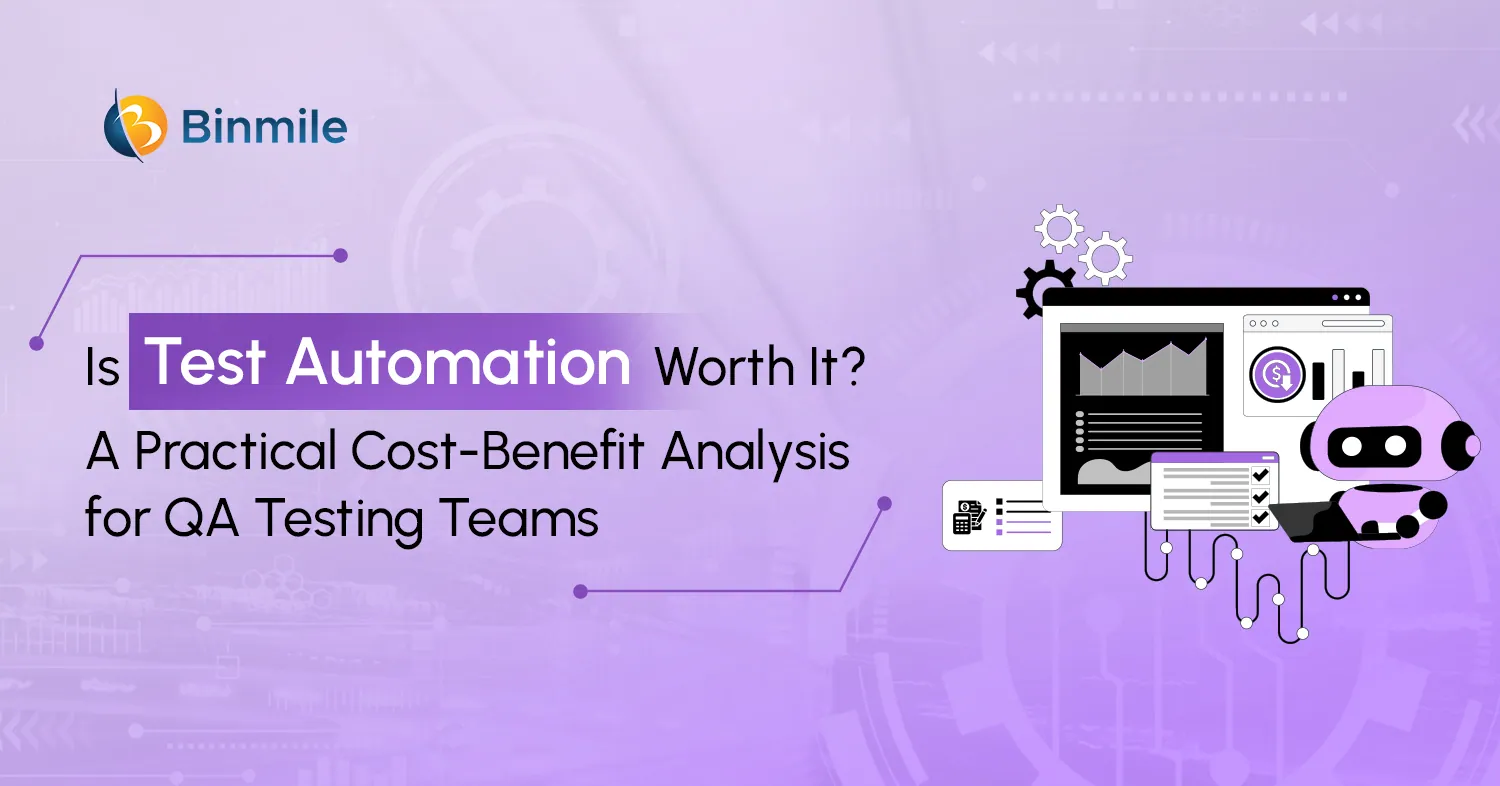Artificial intelligence (AI) has revolutionized the way we approach testing. AI in software testing is also trending because businesses and AI software development companies seek to reduce the time and effort required for testing and deployment. It is something that AI Test automation tools offer. Many enterprises are embracing AI to solve software complexities, simplify testing processes, and further focus on planning, satisfaction, accuracy, and faster delivery rates. Additionally, the ease of maintenance is the biggest advantage of using AI-powered tools over traditional tools. AI-enabled tools come with built-in self-healing capabilities and affect the test automation scenario.
AI-Based Test Automation Tools: Detailed Overview
AI tools for test automation are not only simplifying the software development process but also transforming software testing practices. The AI automation tools provide solutions for challenges like mobile testing and codeless automation. AI-based test automation tools streamline the testing processes for SDLC teams who are looking to automate the software or application testing process. However, there are so many AI testing tools available in the market that it is hard to decide which one is the best for your software. Therefore, to help you make an informed decision, we are providing a list of the top 8 AI testing tools that can bring your testing game to the next level.
Artificial intelligence is the ability of a machine to learn, modify, and use data to handle any future scenarios. AI applies problem-solving and reasoning to automate the testing process. The AI-based test automation tools involve leveraging AI and Machine Learning (ML) in the existing software automation testing tools to generate superior results and address common challenges in software automation testing. Testing conducted with AI-based tools is known for accelerating the product lifecycle, reducing time to market, and driving up the organization’s revenue. AI in automation testing helps in automation test authorization, execution, and maintenance of automation tests:
- Delivery of transparency
- Detection and correction of bugs on time
- Enhancement of the overall efficiency
- Expedition of the automation testing process
- Generation of relevant data for decision-making
- Improvement in the efficiency of the QA processes
What is the Role of AI in Test Automation?
Testers maintain and modify loads of test cases daily. Here, AI-based test automation tools let testers handle repetitive tasks smoothly, generate appropriate decision-making data, and detect and correct issues in the development life cycle at an early stage. AI plays a vital role in maintaining automation test suites and improving UI, Unit, and API testing. Overall, AI testing tools come to testers’ help when they:
- Detect, fix, and correct bugs and errors in the early stages
- Discover changes in apps and modify the script for test case maintenance
- Improve overall efficiency and transparency in the testing processes
- Offer quality testing output accurately and speedily
Top AI Automation Testing Tools in 2026
There is a long list of AI-enabled test automation tools, and the QA team must choose the right one to solve test automation purposes. Many AI testing tools perform intelligent bug hunting, execute predictive self-healing, enable application resilience, and automate business processes and workflows. Here are some unique AI automation tools that testing experts can try in 2026.
1. Katalon
It is an automation testing software tool that offers a quality management platform that supports test creation, management, execution, maintenance, and reporting. It is a dynamic tool and works across all devices, such as web, API, desktop, and even mobile applications, all in one place, with minimal engineering and programming skill requirements. Mobile app automation with Katalon is a key feature, making it highly versatile for testing mobile apps. Katalon Studio is ultimately designed to help teams speed up the SDLC and perform quality assurance more productively. Recently, Katalon has introduced two more members: Katalon Recorder and Katalon TestOps.
- Allows tests across multiple browsers and platforms
- Saves time by integrating with JIRA
- Let’s users import and export test artifacts across projects without having to rewrite scripts
- Provides real-time data and analytics, such as dashboards, heatmaps, and reports, to help users analyze test performance
2. LambdaTest
It is a cloud-based cross-browser testing tool that allows you to perform cross-browser testing for web applications across more than 2000 browsers, operating systems, and devices. You can perform both manual and automated cross-browser testing using LambdaTest. They have the world’s first end-to-end software testing agent, which is an advanced AI-powered platform, Kane AI, built on modern Large Language Models (LLMs). It is a unique approach to creating, debugging, and evolving end-to-end tests using natural language.
- It seamlessly integrates with various CI/CD tools and bug-tracking systems, enhancing workflow efficiency.
- Testers can perform live interactive testing of their web application, significantly speeding up the development and deployment process.
- It allows testers to scale their testing efforts up or down based on their current needs without worrying about the underlying infrastructure.
- It provides a secure testing cloud where all data is protected and complies with the latest security standards.
3. Keysight Eggplant Test
Eggplant is a comprehensive AI-powered software test automation tool that delivers intelligent testing at scale. It uses a digital twin-testing approach that allows testers to interact with applications as if they were real users. It uses optical character recognition (OCR) and computer vision to test what customers see when interacting with an application. With its powerful image recognition capabilities, it captures and compares screenshots, can simulate user interactions, and validates the behavior and functionality of applications across various platforms and devices.
- Easy-to-use test automation tools, which let you test any technology and any platform
- Using a model-based approach, it enables teams to test any application, across any platform, on any device.
- It lets you run scripts on multiple PCs; all you need to do is install Eggplant on one PC to test applications on other PCs that are connected via a network.
- It allows you to test your software without interacting with the software being tested. Instead, it interacts with your software on your behalf
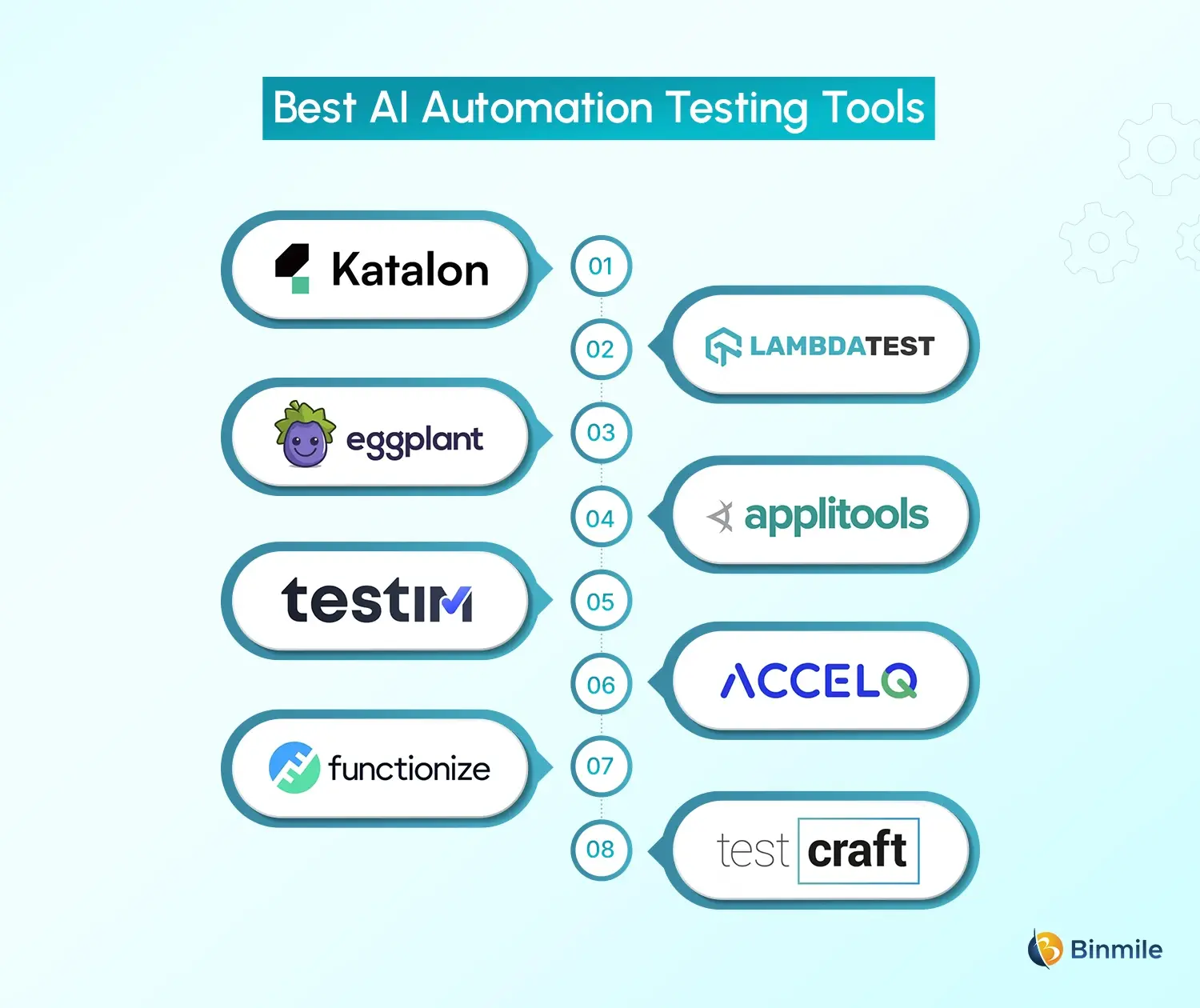
4. Applitools
Applitools is a reliable AI-enabled automation tool for visual UI testing and monitoring. This application is an end-to-end software testing platform that focuses on manual QA, DevOps, and digital transformation. Driven by Visual AI, this tool enables a machine to mimic human behavior. This AI-enabled app is enriched with an adaptive ML algorithm. The tool is made robust with 3.8 times more stability, 45% more defect detection, and 5.8x faster visual-infused tests.
- It has a single line of code to analyze the entire app screen
- It leverages AI and ML for test maintenance
- It has a comparison algorithm that recognizes changes faster
- It integrates existing tests smoothly and eliminates the need for writing and learning new tests
5. Testim.io
Testim.io is an automated functional testing tool that uses AI and ML to accelerate test automation authority, execution, and maintenance. It runs well on different browsers and platforms. It has a free basic plan with limited features and a pro plan supporting everything. This end-to-end AI testing tool reduces test creation and execution time by running multiple tests simultaneously.
- It concentrates on functional and UI testing
- It has smart Locators to detect the changes in the app while running automated tests
- It integrates with CI/CD tools seamlessly and offers detailed bug reports
- It overcomes unstable tests and slows authoring issues that occur from frequent UI changes
- It performs root-cause analysis of the failed tests
6. AccelQ
ACCELQ is a cloud automation tool that offers codeless AI testing and automates different aspects of the quality lifecycle: from Test design to planning, to execution. It is a unique way to automate API & UI testing.
- It focuses on web UI, API, desktop, and mobile platform automation
- It owns self-healing, natural English programming, intelligent element explorer, and automated test generation features
- It offers a unified view of the complete QA lifecycle by integrating well with popular DevOps toolchains
- It offers predictive and path analysis for developing test scenarios
7. Functionize
Functionize is a cloud AI-based test automation tool for functional, performance, and load testing. It uses AI and ML to enhance test creation, diagnosis, and maintenance. It can execute tests within minutes from all mobile browsers and desktops.
- This cloud-based automation testing platform relates to the declarative category of AI testing tools
- It creates, verifies, and maintains tests using AI and ML
- It has an AI-powered smart agent to create tests quickly
- Its SmartFix feature can test failures and detect UI changes with ease
8. TestCraft
TestCraft is an AI-powered test automation platform used for regression and continuous testing. It also monitors web apps well. It uses AI to eliminate maintenance time and costs. This platform enables testers to visually create automated, Selenium-based tests with the help of a drag-and-drop interface.
- It uses ML algorithms to recognize correct web elements while the app changes
- It creates automated Selenium-based tests for testers to run tests on multiple platforms and browsers
- It enables the creation of test models with the On-the-Fly mode for reusing test steps
- It comes with self-healing capabilities
Revolutionize your QA with AI-driven testing tools, enhance accuracy, reduce manual efforts, and deliver flawless software faster.

What Are The Key Benefits of AI in Automation Testing
Testing ensures customer contentment and protects against potential failures within an application. Modern software development life span is complex with quick feedback, frequent releases, and lesser delivery time needs. That is why AI occupies the central stage. The ability of AI testing tools to mimic human behavior makes them highly useful for testers involved in automated and precise continuous testing processes. These AI automation tools identify alterations more efficiently than human beings with perpetual algorithm updates. Here are the different advantages of using AI-based test automation tools.
- Automate API test generation
- Conduct visual testing
- Emerging and evolving bots
- Enhanced defect tracking
- Enhanced writing of test cases
- Greater test coverage
- Improved regression tests
- Improved security
- Prognostic analysis
- Saving time and money
- Self-repair of Selenium tests
Also Read: Test Automation Cost-Benefit Analysis
What are the Challenges Faced in AI Automation Testing
AI has enabled machines to enhance the scope of their problem-solving capabilities. AI-powered machines can think and act like human beings. That is why AI-enabled tools emerge as a helping hand to solve complex problems in the least possible time. AI has transformed the landscape of enhancing testing efficiency and addressing automation testing challenges. Look at some common test automation challenges that testers need to resolve with AI testing tools.
1: Limited Know-How
Your testing team needs to have sufficient testing and programming skills to create an automated test suite. All test automation experts are not the same; so are their testing skills. So, they need help to utilize some open-source and in-house test automation tools.
Organizations need to offer training programs or workshops to improve or enhance their skills in AI and automation tools. In addition, businesses can also encourage their team to leverage online resources and forums for knowledge sharing within the testing team.
2: Scalability
The automation framework should support different tests with quick test results as the test automation suite grows. Moreover, scalability issues can occur if tests are not run and executed smoothly on other devices and configurations.
To resolve the issue, go for an automation framework that is designed to handle a growing number of tests and diverse environments. Additionally, you can also break down tests into smaller, reusable components for easier maintenance and scaling.
3: Continuous Maintenance
Updating the automation test suite frequently with product updates and new features is mandatory. Even with an evolved automation testing tool, testing tools must be tested. Refactoring the test case is a familiar UI Automation challenge. Once a test case is created, it lasts only for a few days. So, it must be maintained regularly.
SDLC team can store test data separately from test scripts for easier updates with product changes. Practice self-healing tests as in enable tests to identify and recover from minor UI changes on their own.
4: Test Reporting
A test automation framework should be equipped with a test reporting feature. Many open-source test automation tools offer minimal information, incomplete insights, and reporting facilities. Here, automation testers need to use external plugins and perform custom programming to add additional reporting features.
Leverage external reporting tools to provide detailed and insightful test results. If you can make visual reporting, such as charts, graphs, and screenshots, this makes reporting clear, understandable, and actionable test reports.
Enhance your testing efficiency with intelligent automation tools, achieve seamless execution, scalability, and detailed insights effortlessly.
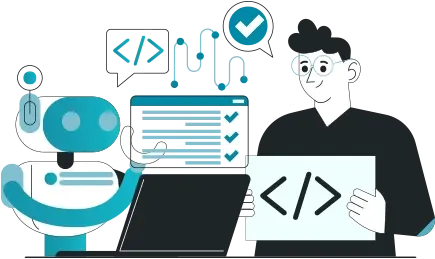
Conclusion
Businesses implementing AI at the enterprise level are already experiencing greater operational efficiency and better productivity results. After all, AI automation allows organizations to replace mundane, repetitive processes while freeing resources to focus on core business. AI Automation in testing enables faster, more efficient, and highly accurate testing methodologies that lead to time efficiency as well as cost. The growing use of AI-enabled tools has already transformed the software testing landscape.
In this blog, we discussed the top 8 AI automation testing tools that can deliver innumerable benefits of AI and ML and are better than traditional automation testing tools. Additionally, you can consult a professional software testing services company that knows how to develop an AI app cost-effectively utilize these tools to offer unique test automation solutions. They can also help you deliver more optimal solutions to automation testing problems in 2026.
Frequently Asked Questions
AI-based test automation tools can handle a wide range of tasks, including data entry, document processing, customer service inquiries, data analysis, image and speech recognition, and decision-making processes. Essentially, any task that involves pattern recognition or rule-based decision-making can be automated using AI.
Unlike traditional test automation tools that rely on predefined scripts and rules, AI-based test automation tools can intelligently learn from test data, identify patterns, and make data-driven decisions. This adaptability allows them to handle dynamic applications and evolving testing scenarios more effectively.
Yes, AI-powered tools can assist in test data management by generating realistic test data, identifying data dependencies, and ensuring the availability of relevant data for test scenarios. This helps in creating more comprehensive and effective test cases.
AI agents play a crucial role in enhancing test automation by using machine learning algorithms to predict potential issues, identify patterns, and adapt to new updates without manual intervention. They enable more efficient and accurate testing by simulating human-like decision-making, ultimately reducing errors and improving the overall software quality.
Yes, AI automation tools can be highly beneficial for small teams and startups by reducing the effort needed for repetitive testing tasks, enabling faster releases, and improving product quality with minimal resources.
